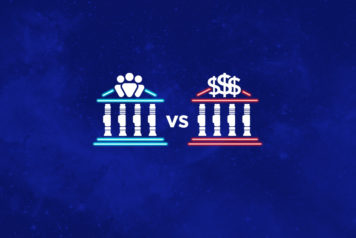How to Improve Your Credit Score
The specific requirements to qualify for a loan may vary depending on the lender you use and the type of loan you get. One of the first things most lenders review is your credit score. The higher your score, the more likely you will be to qualify for a better interest rate. In contrast, the lower your score, the more you’ll pay over the life of the loan or miss out on being approved for the loan.
Your credit score is determined based on your past payment history and borrowing behavior. According to an Experian study, more than a third of all Americans have bad to fair credit, or credit scores below 670.
However, the mathematical formula used to determine your credit score can fluctuate in your favor with some time and effort on your part. Here are a few simple actions you can start today to boost your credit score.
Pay Bills On Time
Paying your bills in a timely manner is one of the most important steps to take in improving your credit score, and often the easiest. Although payment history is only one of the factors that impacts your credit score, late payments stay on your credit report for up to seven years. Red flags are raised by lenders when they recognize a pattern of late payments or delinquent accounts.
If you have trouble keeping track of your due dates, write them down in a calendar or add them as a reminder on your phone. Some financial institution’s offer bill pay as a free online banking service making it convenient to schedule recurring bill payments. If done effectively, this allows you to schedule your payment and forget about it.
Getting Out of Delinquency Status
Delinquency can be reported to credit bureaus as early as 30 or more days past a loan’s due date. Most lenders wait until 90 days past due before turning your account over to collection agency, which will ding your credit score. Most lenders will work with borrowers through payment plans before their account is reported to the collection agency. Contact your creditors or see a legitimate credit counselor if you’re having financial difficulties. This won’t raise your score immediately, but the sooner you begin making timely payments, the sooner your score will improve.
Don’t get discouraged if you’ve had serious delinquencies in the past, a recent history (24 months) of on-time payments carries weight in credit decisions.
Consolidate Debt
Varying payment amounts, due dates, and interest rates on numerous accounts can be difficult to manage and a daunting monthly task. Although consolidating your debt will not improve your score in the long run, it may be a necessary step to making on-time payments is an unattainable goal. A consolidation loan will help bundle all your debt into one, possibly lower, monthly payment. Here is an easy consolidation guide to help you navigate your financial future.
Improve Credit Utilization Ratio
A credit utilization ratio is the current revolving credit balance owed on a person’s credit report divided by the total amount of revolving credit available. In other words, it’s how much you currently owe divided by your credit limit. In general, having revolving debt, like credit cards, with low balances that you pay on time may raise your score but high outstanding debt can pull your score down.
Once you’ve paid off or paid down a credit card, don’t cancel it. Paying off credit cards entirely – but not closing them – will improve your ratio the most. Canceling cards you worked hard to pay off will only decrease the total amount of revolving credit you have available which will decrease your credit utilization ratio. Instead, tuck those cards into the back of your wallet or into a drawer to use only for emergencies.
Don’t extend your credit with new cards just to try to increase your debt utilization ratio. Showing solid payment history and having low balances on what you currently have is better than extending your credit further.
Fix Errors on Credit Report
Request your credit report and review the items listed for accuracy and relevancy. Inaccurate information on your credit report can be cleared up easily. Always contact the original creditor and the credit bureaus whenever you clear up an error so that the inaccurate information won’t reappear later.
Follow this step-by-step guide to dispute any errors found with the credit agency that has listed them. Each credit bureau has 30 days to respond to inquiries about your claim. A little detective work (with documentation to prove your claims) could improve your score.
How long does it take to rebuild your credit?
The lower the score, the faster you will be able to see improvements, since you have lots of room to grow. Simply establishing a good payment history can help improve your credit score in as little as 30 days.
These ideas won’t create a dramatic improvement in your credit score overnight, but over time, they will. Remember, it takes time to develop a strong profile. Once you’ve done it, you’ll find it easier to apply for credit and favorable interest rates.
Read more helpful articles to plan for your financial success here.
This article is for educational purposes only. WeStreet Credit Union makes no representations as to the accuracy, completeness, or specific suitability of any information presented. Information provided should not be relied on or interpreted as legal, tax or financial advice. Nor does the information directly relate to our products and/or services terms and conditions.


